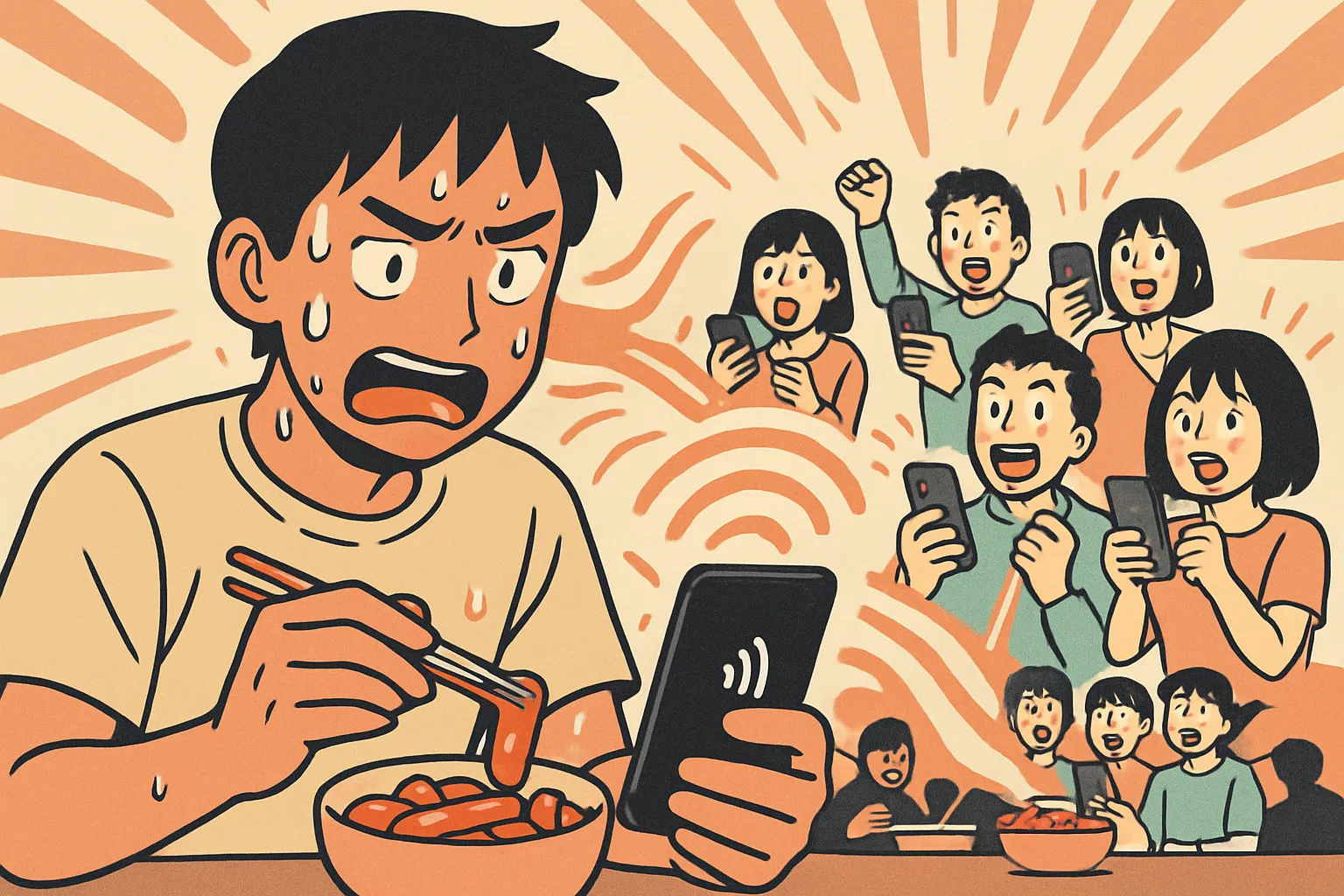Is Another You Possible? K-Drama Worlds & Korean Modal Logic
Hello! It’s your favorite Korean upgrade kit, [Maeil Hangul]!
Are you ready to elevate your Korean from fluent to truly profound? Today, we’re diving into a topic that will sharpen your argumentative skills and allow you to discuss complex, abstract ideas just like a native speaker: Modal Logic (양상 논리). This might sound academic, but it’s the language we use every day to talk about what is necessary, what is possible, and what could have been.
Lately in Korea, everyone is buzzing about the hit sci-fi drama ‘Seoul’s Other Dimension’ (서울의 다른 차원), which is filled with parallel universes and “what if” scenarios. This cultural trend makes it the perfect time to master the Korean expressions that explore the very fabric of reality. Let’s learn how to discuss what must be (필연) and what could be (가능)!
Core Expressions for Exploring Realities
Here are the essential tools you’ll need to navigate conversations about necessity and possibility.
1. 필연적으로 (Pilyeon-jeogeuro)
- Romanization: Pilyeon-jeogeuro
- English Meaning: Necessarily / Inevitably / As a matter of logical necessity
- Detailed Explanation: This is a formal and powerful adverb used to state that a conclusion or event is the only logical outcome of a given premise. It’s stronger than simply saying “of course” (당연히). Use 필연적으로 when you want to emphasize that something is a logical or fateful inevitability. It implies a cause-and-effect relationship that cannot be avoided.
2. V/A + ~(으)ㄹ 수밖에 없다 (~(eu)l su-bakke eopda)
- Romanization: ~(eu)l su-bakke eopda
- English Meaning: There is no choice but to… / It is bound to be… / It can’t not be…
- Detailed Explanation: This grammatical structure is the everyday, conversational way to express necessity or a logical conclusion. It literally means “there is no way outside of doing/being X.” It’s used when circumstances leave only one possible outcome. For example, if all evidence points to one suspect, you would say “그가 범인일 수밖에 없어” (He is bound to be the culprit).
3. 가능성 (Ganeungseong)
- Romanization: Ganeungseong
- English Meaning: Possibility / Probability / Likelihood
- Detailed Explanation: This is the foundational noun for discussing what is possible. It can be used in various ways:
- 가능성이 있다/없다: There is/isn’t a possibility.
- 가능성이 높다/낮다: The possibility is high/low.
- 모든 가능성을 열어두다: To leave all possibilities open.
It’s a neutral term suitable for both formal analysis and casual speculation.
4. 만약 … ~(ㄴ/는)다면 (Manyak … ~(n/neun)damyeon)
- Romanization: Manyak … ~(n/neun)damyeon
- English Meaning: If it were the case that… / Supposing that…
- Detailed Explanation: This is the classic conditional structure used to explore hypothetical or counterfactual situations—the very heart of “possible worlds” in modal logic. While you know basic
-(으)면conditionals,만약 ... ~(ㄴ/는)다면is more effective for setting up a purely speculative or imaginary scenario. It signals to the listener that you are about to explore a world that is not the current reality.
Example Dialogue: Debriefing the Drama
Let’s see how these expressions come to life in a conversation between two friends, A and B, discussing the latest episode of ‘Seoul’s Other Dimension’.
A: 어제 ‘서울의 다른 차원’ 봤어? 마지막 장면은 정말 충격적이었어.
(Did you watch ‘Seoul’s Other Dimension’ yesterday? The last scene was truly shocking.)
B: 봤지! 만약 주인공이 시간 여행 장치를 파괴하지 않았다면, 그 세계는 필연적으로 멸망할 수밖에 없었을 거야.
(Of course! If the main character hadn’t destroyed the time travel device, that world would have been bound to perish inevitably.)
A: 맞아. 그래도 다른 가능성은 정말 없었을까? 모든 가능성을 고려해 봤어야지.
(Right. But was there really no other possibility? He should have considered all the possibilities.)
B: 글쎄, 작가가 보여준 정보만으로는 그 선택이 유일한 해결책일 수밖에 없어. 하지만 다음 시즌에 반전이 있을 가능성도 배제할 순 없지.
(Well, based only on the information the writer gave us, that choice was bound to be the only solution. But we can’t rule out the possibility of a twist next season.)
Cultural Tip: Necessity (필연) vs. Possibility (가능) in the Korean Mindset
This logical framework is fascinating when viewed through a Korean cultural lens.
Historically, the concept of 인연 (inyeon)—a sort of fate or destiny, especially in relationships—has been a powerful narrative force. You could say that in classic Korean stories, meeting a significant person is often framed as a 필연적인 (pilyeon-jeogin), or necessary, event.
However, modern Korean content, like the fictional drama ‘Seoul’s Other Dimension’, reflects a huge shift. Today’s storytellers, especially in webtoons and sci-fi, are obsessed with exploring 가능성 (ganeungseong). They constantly ask “what if?” and build entire worlds based on a single choice, showing how one small change can create a completely different reality. This reflects a modern mindset where individual choice and alternative paths are seen as more powerful than a single, predetermined fate. By mastering today’s vocabulary, you’re not just learning logic; you’re tapping into a major cultural conversation happening in Korea right now!
Wrap-up & Practice
Today, we’ve gone beyond simple statements to explore the nuanced language of logic and speculation. You’ve learned to express what is inevitable with 필연적으로 and ~(으)ㄹ 수밖에 없다, and how to open up entire new worlds of thought with 가능성 and 만약 … ~(ㄴ/는)다면.
Now, let’s put your new skills to the test!
- Fill in the blank:
- 그가 매일 10시간씩 공부했으니, 시험에 합격할 __ __ __.
- (Since he studied 10 hours every day, he _______ pass the exam.)
- Create a sentence:
- Using “만약 내가 다른 나라에서 태어났다면…” (If I had been born in a different country…), write one sentence about how your life might be different.
We’d love to see your answers and your own “what if” scenarios! Leave a comment below using one of the expressions you learned today!






